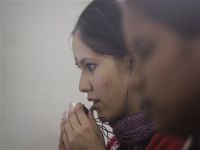Gender discrimination: Preventing societies from reaching potential
October 15 has been the International Day for Rural Women since 2008, in recognition of the role women play in rural communities enhancing rural development, improving the environment, eradicating poverty, food insecurity and providing for their communities. Yet discrimination, endemic in many societies, prevents them from reaching their potential.

The role of women in societies in developed and developing countries is fundamental for the development of the communities in which they live and which they serve. Their contribution to the economies of these societies is vital for their development. In most developing countries it is the women who engage in the production of crops, caring for livestock, fetching water, providing food, providing water, providing fuel, working off the farm to gain more money or gather more food for the family, while simultaneously caring for the children, looking after the old, treating the sick...and in too many cases, being abused by a sexist husband or partner.
This is why the theme for the 57th session of the Commission on the Status of Women in March 2013 will be "Elimination and prevention of all forms of violence against women and girls" while the UNO in September 2012 launched the five-year programme "Accelerating Progress Toward the Economic Empowerment of Rural Women". It will be implemented in Ethiopia, Guatemala, Kyrgyzstan, Liberia, Nepal, Niger and Rwanda under the auspices of UN Women, the Food and Agriculture Organization (FAO), the International Fund for Agricultural Development (IFAD), and the World Food Programme (WFP).
Michelle Bachelet, Executive Director of UN Women, states "When women are empowered and can claim their rights and access to land, leadership, opportunities and choices, economies grow, food security is enhanced and prospects are improved for current and future generations".
The programme is intended to improve food security, increase women's incomes, enhance women's leadership in rural institutions and implementing responsive policy mechanisms at all levels.
Worldwide, women constitute 43% of the agricultural workforce - over 70% in some countries - and often run small businesses, dedicating up to all their income on providing for their families. However, despite all this, rural women in many cases face obstacles in gaining access to public services, protection, employment, markets, education and public institutions. Gender equality, in 2012, does not exist.
Eliminating these obstacles is laying the foundations to allow women to reach their full potential, in turn reducing food insecurity and developing local and national economies.
Timothy Bancroft-Hinchey
Pravda.Ru
Subscribe to Pravda.Ru Telegram channel, Facebook, RSS!


